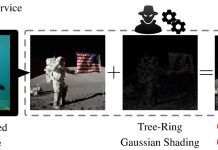
In a recent study, researchers have used artificial intelligence (AI) to build a model that could predict risk of death in patients with heart disease.
The AI model prediction is better than models designed by medical experts, a new study shows.
The study is from the Francis Crick Institute.
Coronary artery disease develops when the major blood vessels that supply the heart with blood, oxygen and nutrients become damaged, or narrowed by fatty deposits.
Eventually restricted blood flow to the heart can lead to chest pain and shortness of breath, while a complete blockage can cause a heart attack.
In the study, the model was designed using the electronic health data of over 80,000 patients, collected as part of routine care, and available for researchers on the CALIBER platform.
The team wanted to see if they could create a model for coronary artery disease that outperforms experts using self-taught machine learning techniques.
An expert-constructed prognostic model for coronary artery disease which this work was compared against made predictions based on 27 variables chosen by medical experts.
By contrast, the Crick team got their AI algorithms to train themselves, searching for patterns and picking the most relevant variables from a set of 600.
The researchers found that not only did the new data-driven model beat expert-designed models at predicting patient mortality, but it also identified new variables that doctors hadn’t thought of.
This study was a proof-of-principle to compare expert-designed models to machine learning approaches, but a similar model could be implemented in the clinic in the not too distant future.
This finding adds to the growing evidence that AI could revolutionize healthcare in the world.
So far, the emphasis has been on the potential of AI to help diagnose and treat various diseases, but the new finding suggests it could also help predict the likelihood of patients dying too.
Crick scientist Andrew Steele is the first author of the paper.
The study is published in PLOS One.
Copyright © 2018 Knowridge Science Report. All rights reserved.
Source: PLOS One.



